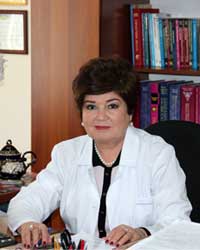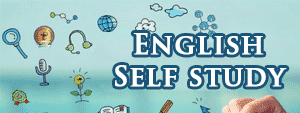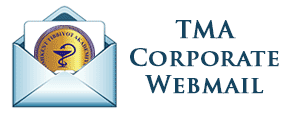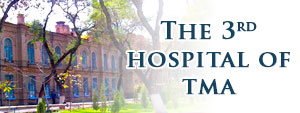Professor of the Hygiene of Children, Teenagers and Nutrition Department TMA
Education:
- 1969-1975 – student of the Tashkent State Medical Institute, medical and preventive medicine
- 1981-1984 – graduate student of Tashkent State Medical Institute (Diploma of Candidate of Medical Sciences)
- 1990-1993 – doctoral student of the Institute of Nutrition Russian Academy of Medical Sciences (former USSR) (Diploma of Doctor of Medical Sciences)
Work experience:
- 1969-1975 – student of the Tashkent State Medical Institute
- 1975-1981 – Junior Researcher of the Tashkent State Medical Institute
- 1981-1984 – Postgraduate Student, Tashkent State Medical Institute
- 1984-1990 – Assistant of the Department of General Hygiene of the Tashkent State Medical Institute
- 1990-1993 – doctoral student of the Institute of Nutrition Russian Academy of Medical Sciences (former USSR )
- 1993-1994 – Associate Professor of Children and Teenagers Hygiene Department II Tashkent State Medical Institute
- 1994-1995 – Professor of the Children and Teenagers Hygiene Department of the Tashkent State Medical Institute
- 1995-2005 – Head of the Department of Hygiene of Children and Adolescents of II Tashkent State Medical Institute
- 2005-2012 – Head of the Hygiene of Children, Teenagers and Nutrition Department of the Tashkent Medical Academy
- 2012 – present – Professor of the Hygiene of Children, Teenagers and Nutrition Department of the Tashkent Medical Academy
Scientific activity:
- 1984 y. – defended his thesis on the topic: “Hygienic justification of new sausage products for public and therapeutic nutrition”
- 1993 y. – defended his doctoral dissertation on the topic: “Hygienic rationale for alimentary correction and prevention of iron deficiency anemia in pregnant women using specialized anti-anemic food products”
The main areas of practice: Development of the measures directed to assistance of the preventive activity and increase in the standard of living aimed at providing sanitary and epidemiologic wellbeing of various groups of the population of the Republic of Uzbekistan.
The main directions of the activity of the park are: Progressive research of measures for improvement of indicators of health of various populations of the Republic of Uzbekistan as a result of impact of medicobiological, social and hygienic, ecological and other factors of a way of life on health of the population.
The main scientific works for the last 5 years:
Articles and theses:
- Rational nutrition of students .// Speaker. Tashkent Medical Academy. 2013. No. 4 C.102-1082.
- Assessment of the incidence of schoolchildren studying in adverse environmental conditions. // Bulletin of the Association of Doctors of Uzbekistan. 2013. №4 P.51-54.3.
- Rational nutrition of students // Vestnik. Tashkent Medical Academy. 2013, No. 4.B.102-108.4.
- An estimation of morbidity of schoolboys trained in adverse ecological conditions. // Bulletin of the Association of Doctors of Uzbekistan. T.2013. p.51-54.5.
- An estimation of morbidity of schoolboys trained in adverse ecological conditions. // Bulletin of the Association of Doctors of Uzbekistan. T.2013. p.51-54.6.
- The importance of essential trace elements in the diet. Bulletin of the Medical Academy. 2014. №2 with. 93-98.7.
- Characteristics of actual nutrition and qualitative analysis of nutrients in the diet of students of the Republic of Karakalpakstan. Bulletin of the Medical Academy. 2014. №2. Pp. 88-92.8.
- Propagation of the principles of rational nutrition in obesity. Medical Journal of Uzbekistan 2014 No. 2, pp. 138-1419.
- Hygienic aspects of studying the conditions of education and upbringing of children with disabilities. Medical Journal of Uzbekistan. №4. 2014. P.89-93.10.
- Measures for the prevention of food poisoning // Uzbekistan General Practitioners’ Bulletin. T. 2015 № 2. B18-21.11.
- Hygienic justification of diet therapy for kidney diseases // Bulletin of the Tashkent Medical Academy – 2015. № 3. p. 56-65.12.
- Hygienic aspects of nutrition in Tashkent city. TTA Newsletter. 2015 year B.124-127.13.
- Nutrition of breast-feeding children. INFORMATION ON GENERAL PROVISIONS OF UZBEKISTAN. № 1. Tashkent, 2016. 24-26b.14.
- Hygienic assessment of the organization of the educational process in specialized boarding schools for children with musculoskeletal disorders // Journal of Theoretical and Clinical Medicine. №2 2016g.S.101-104.15.
- Hygienic assessment of persistent organochlorine pesticides in milk products. “European Science Review”. – Vienna. – 2016. №3-4. – p.142-14516.
- Health indicators of children of preparatory groups of preschool institutions in the Republic of Karakalpakstan. Bulletin of the Tashkent Medical Academy No. 4, 2016, p.133-137. 141-14517.
- Medico-biological justification of the powder wheat shoots “Maysara” in the treatment of IDA. Infection, immunity and pharmacology Scientific and practical journal. T. №1. 2017. P.25-2918.
- Medico-biological justification for the use of sausages for public and therapeutic nutrition. Infection, immunity and pharmacology. Scientific and practical journal. T. №1. 201719.
- Dental status and hygienic rationale for the functional readiness of children for systematic training in preparatory groups. Stomatology. 2017. № 8, С.8-11.20.
- Food and biological value of soy flour. Bulletin of the Tashkent Medical Academy. – Tashkent – 2017. № 2. – P. 131-133.
Teaching aids and methodological recommendations:
- Guidance for practical training on food hygiene. T. “New Generation Generation”. 2014. 420 p.
- Ecological Sustainable Development in the XXI Century, Nutrition and Health Problems. Educational manual. 2014 Alma-Ata. 400 p.
- A manual for practical exercises on food hygiene. – T. “Yangi asr Avlodi”. 2014. 474 p.
- Guidance on nutrition hygiene / / T. 2015 438 p.
- Cooking courses. // Scientific popular guide, “O’ZBEKISTON”, HMMU, 2015. 424 p.
- Food poisoning and prevention measures / Methodical instructions. T. 2015, p.
- Shaykhova G.I. “Low protein diet for patients suffering from chronic renal insufficiency.” Guidelines. – Т. 2017. 24 p.
- Shaykhova G.I. “Hygienic substantiation of actual nutrition of patients suffering from chronic renal insufficiency”. Guidelines. – Т. 2017. 22 p.











